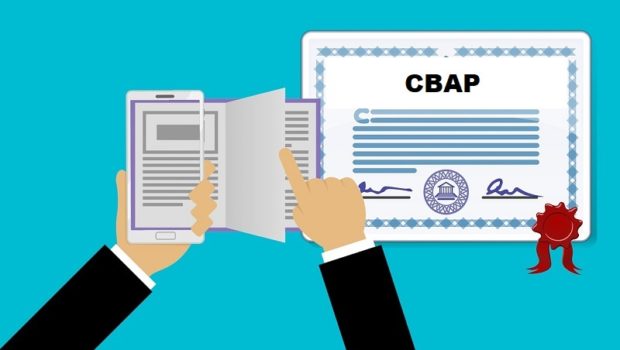How to prepare for the CBAP certification exam?
The Certified Business Analysis Professional (CBAP) is a designation awarded by the International Institute of Business Analysis (IIBA) upon the completion of professional certification. It is granted to individuals who have demonstrated their extensive skills in business analysis by qualifying the CBAP exam. Business analysts play a crucial role in propelling businesses towards profitability, productivity, and efficiency.
We have prepared this article, keeping in mind the soaring demand for business analysts and related professionals. Here, we will discuss everything you need to know about the CBAP certification and how to prepare for the exam.
Now, before going ahead with the preparation steps for the CBAP certification exam, let us understand the importance of CBAP certification, the eligibility requirements, and a brief about the CBAP certification.
Why is CBAP certification important for business analysis?
While businesses are expanding and growing every day, adapting to market changes has become necessary for every company. Any kind of business change holds the potential to bring in huge profits or cause a substantial loss. Hence, it is crucial to determine the consequences that process changes might bring about. In such a scenario, business analysis comes into play; from defining the business requirements to suggesting sustainable business solutions, companies rely heavily on business analysts. In a competitive business scenario where each organization strives to outdo the other, having a CBAP certification that can affirm your expertise and competency can be advantageous in several ways:
- The certification demonstrates your skills and expertise while validating the reliability of a potential candidate as a business analyst.
- The CBAP certification adds weight to your experience-based growth and opens up possibilities of promotions and salary increments.
- In the course of training, you can build a network with peers and other certified professionals. While enriching your experience, networking can help you bag good job opportunities.
- Signing up for the certification course is an excellent opportunity for the continuous improvement of performance for better delivery.
- Be it retail, entertainment, finance or the healthcare industry, business analysts have become a valuable asset. The certification in business analysis qualifies you for different roles in almost any sector.
Who can take up CBAP certification?
The CBAP certification is for:
- Individuals with remarkable business analysis experience
- Product managers
- Non-business analyst consultants
- Trainers
- Hybrid business analysis professionals
- Project managers
- Testers
- Quality assurance professionals
- Change managers
- Designers
The CBAP Certification
The CBAP certification is a well-reputed and globally accepted certification that will help you establish your credentials as a skilled business analyst. The BABOK Guide, or the Guide to the Business Analysis Body of Knowledge, sets standards for practicing business analysis. Based on this guide, the CBAP exam tests a candidate’s understanding of the practices, principles, and activities of business analysis, as well as ability to apply the skills to practical scenarios. From 2020, IIBA has made the CBAP examination entirely online. Some important details related to the examination are as follows:
Eligibility criteria:
- Having at least 7,500 hours of business analysis work experience in the past 10 years
- Of this experience, a minimum of 900 hours, each, should have been completed in 4 out of the 6 BABOK Guide knowledge areas
- Completion of at least 35 hours of professional development in the past four years
- Providing two references
- Agreement to the CBAP Code of Conduct
- Agreement to the CBAP terms and conditions
Syllabus:
The syllabus includes business analysis planning & monitoring, strategy analysis, elicitation & collaboration, requirements analysis and design definition, requirements life cycle management, and solution evaluation with varying weightage.
Examination pattern:
The CBAP exam is a mix of case study and scenario-based MCQ questions. There are 120 MCQs, each having one correct answer out of four options. The time allotted for the exam is 210 minutes with no negative marking.
Bonus: Take the CBAP certification free practice test to gather an idea about your current status.
How to prepare for CBAP certification?
In this section, we will provide a step-by-step guide on how to prepare for and ace the CBAP certification exam:
Step 1: Ensure that you are eligible for the CBAP exam. The eligibility criteria have been discussed in the previous section.
Step 2: Set goals and a plan of action for exam preparation.
Step 3: Familiarize yourself with the CBAP exam syllabus, pattern, and blueprint. The objectives of the exam and the examination pattern have been described in the previous section.
Step 4: Collect relevant resources and study materials. Start with books that teach you the basics of business analysis and then move on to the BABOK Guide Version 3.
Step 5: If you are not confident with self-study, then sign-up for IIBA-approved CBAP training. Depending on your convenience, you can choose from online training, classroom training, or instructor-led training. These training programs help you gain professional development hours.
Step 6: Check your level of preparation through CBAP practice tests. You can choose from several practice test providers and exam simulators. Practice tests not only acquaint you with the real exam but also help you have a clear understanding of the concepts.
Conclusion
The CBAP certification is a credential that substantiates and demonstrates a senior-level professional’s business analysis skills. Any professional with more than 5 years of experience in business analysis can obtain this certification to boost their career. The examination is entirely online. The right strategy can help you kick start your preparation and take your career as a business analyst to the next level.
















